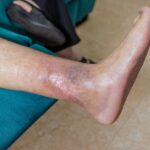The thought of post-rehab can be daunting for both the individual struggling with addiction and their family members, whether they are currently in rehab or considering enrollment in a facility.
Ultimately, this is when many encounter obstacles; however, sustaining the efforts made in addiction recovery is achievable. Most rehab centers offer aftercare treatment and relapse prevention support. This article by experts at our Houston Drug Rehab explores aftercare rehab associated with selecting an addiction recovery center. Continue reading to learn more.
What Is Aftercare Rehab?
“Aftercare” refers to any ongoing treatment or support for drug abuse that follows an initial rehab program. Formulating an aftercare plan during early recovery can mitigate the risk of relapse by offering support and enabling individuals to address issues related to their addiction. Upon achieving stability in their sobriety, they may also begin to support other individuals who are gaining sobriety.
What Happens in Aftercare Rehab Following the Completion of Rehab?
Upon completion of rehab at our Houston drug rehab, your medical team will assist you in transitioning to a drug addiction aftercare program. Aftercare programs are tailored treatment plans that address your needs during the initial phases of sobriety and healing. A typical aftercare program will include continuous therapy sessions. Depending on your program and the effective therapy model used during treatment, these sessions may include individual, group, or family therapy.
Another essential component of aftercare planning is participating in peer support groups such as Alcoholics Anonymous (AA) and Narcotics Anonymous (NA), among others. Engaging in regular peer support group sessions as a recovering addict offers an opportunity to express your fears and challenges in sobriety with a group of individuals similarly navigating different stages of recovery. Support groups provide a mechanism for cultivating new, healthy social networks. Participation in social groups mitigates the difficulties many individuals encounter in early recovery, including isolation and loneliness. Sadly, these are also two factors that contribute to relapse for certain individuals.
Goals of Aftercare Rehab
Relapse is common in addiction recovery; however, participation in aftercare programs is effective in reducing relapse rates. The goals of aftercare rehab are to:
- Prevent relapse
- Build life skills
- Maintain accountability
- Provide emotional support
- Establish healthy routines
- Promote personal growth
- Strengthen coping mechanisms
Start Your Journey to Lasting Sobriety with Aftercare Rehab at Our Houston Drug Rehab
Overcoming addiction is not a one-day process. While treatment programs have a defined duration, recovery is an ongoing journey. It is a lifelong process that requires continuous dedication, effort, and commitment. For those new to recovery, it is essential to remain vigilant regarding individuals, environments, or circumstances that may trigger a desire to use substances again. An aftercare program offers a crucial and tailored strategy for addressing triggers and the related difficulties of maintaining sobriety. If you or a loved one is struggling with addiction and is prepared to overcome substance abuse, contact Mallard Lake Detox Center today. As you near the end of your treatment program, consult your medical professionals about the benefits of aftercare planning to support the continuation of your recovery journey.
















